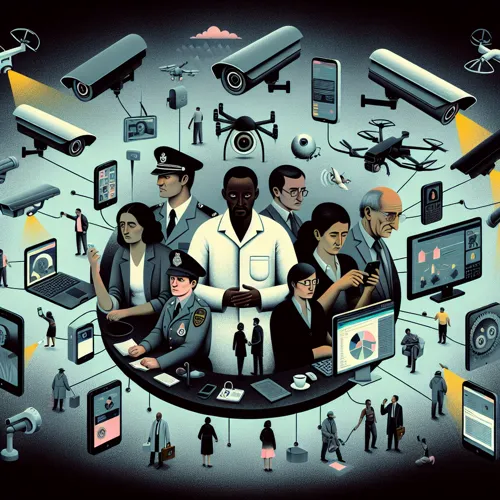In recent years, advancements in technology have enabled governments and private organizations to collect vast amounts of personal data through mass surveillance practices. Named after the Panopticon architectural concept by Jeremy Bentham, this omniscient form of monitoring can permeate every aspect of our lives - from communications to internet browsing history. As we explain for beginners, this article explores why such a seemingly efficient system may, in fact, be detrimental to the fundamental principles of modern societies.
Invasion of Privacy and Civil Liberties
Panoptic surveillance fundamentally infringes on the basic human right to privacy, as people can no longer conduct their daily activities without being observed. Such intrusions into our private lives often go unnoticed but have a profound effect on citizens’ willingness to engage in political dissent or exercise personal freedom. A crucial principle of democracy - free speech and assembly - could be weakened if people believe they are constantly under surveillance.
Panoptic practices undermine civil liberties by making individuals cautious about their behavior, potentially suppressing unpopular opinions and actions. People might hesitate to participate in peaceful protests, engage with politically challenging content, or openly share controversial ideas for fear of repercussions from authorities or social disapproval based on the perceived surveillance.
Surveillance technologies could also result in discrimination against minority groups as they are disproportionately targeted for monitoring and control, leading to further marginalization. Moreover, it is difficult to guarantee that collected data won’t be misused or leaked, which may cause considerable damage to people’s lives.
Chilling Effect on Creativity and Innovation
The presence of pervasive surveillance can lead to a chilling effect on creativity and innovation by suppressing experimentation and critical thinking in society. People are less likely to try new ideas or pursue potentially controversial concepts if they believe someone is always watching, monitoring, or judging their actions. The stifling environment fostered by mass surveillance could negatively impact various industries like art, journalism, research, and business development.
Creative industries such as film, literature, theater, and music could suffer as artists may avoid producing work deemed “controversial” or critical of prevailing narratives in order to protect their reputation or career prospects. This self-censorship limits the diversity and vibrancy of cultural productions for society’s consumption.
Journalists and researchers might withhold information due to potential backlash from authorities, corporate pressure, or personal risks. Consequently, valuable insights and crucial revelations may not see the light of day, undermining public accountability and discourse.
Encouraging Government Misconduct and Authoritarianism
The very existence of Panoptikum (Panopticon) systems can contribute to abuses by those entrusted with its use, encouraging government misconduct or the rise of authoritarian rule. With unchecked surveillance powers, it’s possible for governing bodies to engage in illicit practices like targeting dissenters, spying on opposition figures, manipulating election results, and covering up corruption.
When citizens know that their every move is potentially monitored, they could perceive democratic institutions as undermining their rights and freedoms instead of protecting them, leading to political disenchantment. Furthermore, in authoritarian regimes, mass surveillance tools can be used for oppressive purposes without checks and balances from independent judicial bodies or free media.
Conclusion
In conclusion, panoptic surveillance poses numerous risks and challenges to the well-being of our society. It not only affects personal privacy and civil liberties but also limits creativity, innovation, and democratic processes. While the intention behind these systems is often to protect citizens from external threats or maintain law and order, their potential negative consequences cannot be ignored. A critical debate about the use, oversight, and limitations of surveillance technologies must occur to safeguard our rights and preserve the essence of our democracies
